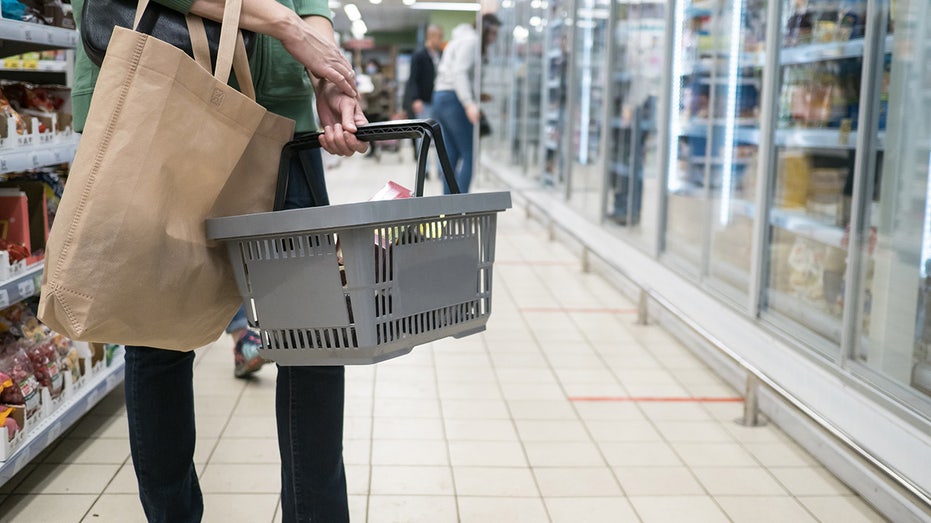Persistent inflation keeping grocery prices high for consumers
Prices for food at home were up 11.3% over a year ago in January
Consumers can save on food by being ‘intentional’ about where you shop: Rachel Cruze
Financial expert and podcast host Rachel Cruze shares her best food budgeting tips for consumers as inflation continues to burden shoppers nationwide on 'Cavuto: Coast to Coast.'
Persistent inflationary pressures in the U.S. economy have kept prices for groceries high even as inflation has eased somewhat in other sectors of the economy.
The Bureau of Labor Statistics' monthly consumer price index (CPI) report for January released last week showed that prices for food at home – the classification for food bought at the store to be prepared at home – were up 11.3% compared to last year. That figure is well above the overall inflation number, which came in at 6.4% year-over-year as of January and is down from a 40-year high of 9.1% in June 2022.
The high cost of groceries hits fixed- and low-income families particularly hard. For those receiving Social Security, the 8.7% cost-of-living-adjustment (COLA) that took effect in January 2023 – which is the largest since 1981 and boosted the average monthly benefit by about $140 – still leaves beneficiaries with relatively less income for groceries compared to a year ago even with the COLA.
STICKY INFLATION OPENS DOOR TO STEEPER FED RATE HIKE IN MARCH

Shoppers shop at a grocery store in Glenview, Ill., Monday, July 4, 2022. U.S. demand for grocery delivery is cooling as food prices rise. Some shoppers are shifting to less expensive grocery pickup, while others are returning to the store. (AP Photo/Nam Y. Huh / AP Images)
Inflation may continue to persist in the economy despite the Federal Reserve's interest rate hikes, which are intended to gradually bring inflation back down to the Fed's target rate of 2%. Last week's inflation report showed that the CPI increased by 0.5% in January after a surprise decline of 0.1% in December's reading.
Food retailers are trying to rein in grocery costs, according to FMI - The Food Industry Association VP for Tax, Trade, Sustainability and Policy Development Andy Harig.
INFLATION ROSE 6.4% IN JANUARY

Carmelia Bello is a bodega owner in Brooklyn, New York, who said inflation and crime are hurting her business. (iStock / iStock)
"The January CPI illustrates that inflationary price increases are not resetting as quickly, or as uniformly, as consumers would like," Harig wrote in a press release after the latest CPI report. "Unfortunately, it is likely that food prices will remain elevated in the short term, and we anticipate that there could be further volatility in terms of inflation rising and falling in the coming months. Yet we continue to remain cautiously optimistic that the worst of food price inflation is behind us."
Harig added that its own survey found shoppers are spending an average of $151 per week on food, below the pandemic peak of $161 per week, and noted, "To help consumers stretch their food dollar, grocers have dramatically increased investment in their store brand offerings, among other strategies."
GET FOX BUSINESS ON THE GO BY CLICKING HERE
The U.S. Dept. of Agriculture's (USDA) Economic Research Service (ERS) projected in January that food prices will grow more slowly in 2023 than they did in 2022, although prices will remain above historical averages. The ERS report released last month forecasted that all food prices will rise by 7.1%, with a prediction interval of 4.2% to 10.1% in 2023. Food-at-home prices are predicted to rise 8% in 2023, with an interval of 4.5% to 11.7%, according to the ERS.




















